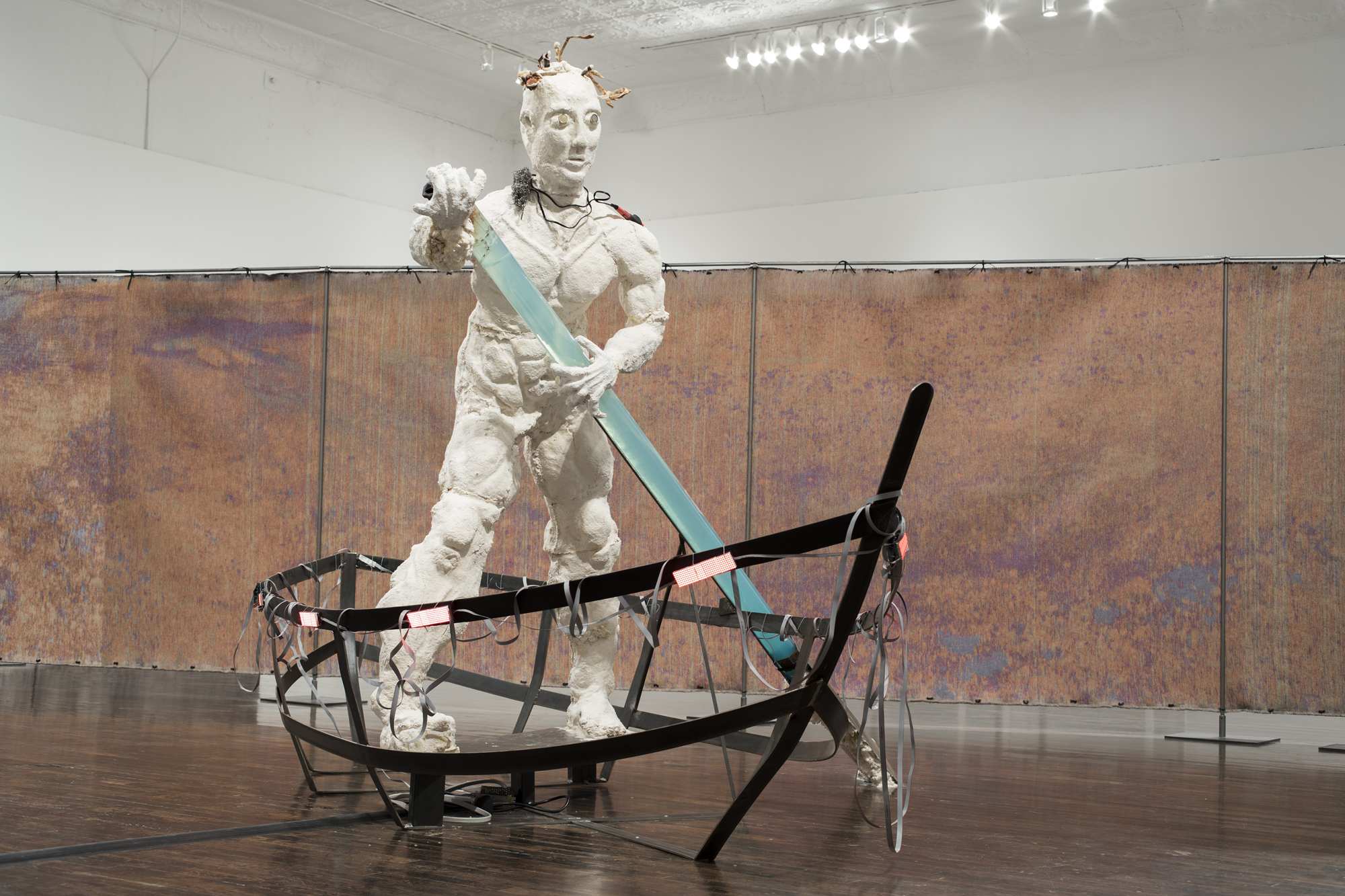
One of the roles of art is to make the imperceptible lucid, the uncanny understandable. In a mind-expanding exhibition at Ballroom Marfa called “Strange Attractor,” the curator Gryphon Rue has assembled a batch of these kinds of spooky artworks, approaching them as an alchemist might call upon talismans—holding them up to the light. One piece in the show, a statue of the Greek ferry god Charon (whose job is to transport the departed across the river Styx), was built by the artist Phillipa Horan out of mycelium, a freaky fungal network capable of extending across miles of land. Photographs by Thomas Ashcraft, meanwhile, capture beautiful electrical patterns in the night sky called “sprites,” a variety of luminous discharges in the mesosphere that were only discovered in 1989. Coming into the show, expect to learn odd new things you hadn’t yet imagined: the unknown unknowns.
Rue, a musician when he isn’t curating shows, is an expert in avant-garde sound art. He’s written a text on “Calder and Sound,” listening for sonic qualities in the sculptures of his great-grandfather, Alexander Calder. It’s not surprising then that artworks in his group exhibition relate to one another more by their beguiling tone than by their visual appearance. Other key pieces are by the filmmaker Beatrice Gibson, the sound artist Lawrence Abu Hamdan (whose fascinating piece examines the way authorities use linguistic analysis to determine the true origin of asylum seekers), data-visualizer Channa Horwitz, the band Lucky Dragons, and Calder, whose never-before-exhibited “noise-mobile” Clangors (1942) hangs in the entrance of the show.
Below, see works from Rue’s transporting desert phantasmagoria.
Thomas Ashcraft’s Dancing Sprites Over Southeast Colorado, August 04, 2013.
Channa Horwitz, Sonakinatography I Composition XXII, 1991. Photo by Alex Marks.
Douglas Ross, abstraxi, 2014. Photo by Alex Marks.
Haroon Mirza, Cosmos, 2016. Photo by Alex Marks.
Phillipa Horan, Foreign Exchange, 2015–2017. Photo by Alex Marks.
Alexander Calder, Clangors, 1942. Photo by Alex Marks.
Lawrence Abu Hamdan, Conflicted Phonemes, 2012. Photo by Alex Marks.
The entrance to “Strange Attractor” at Ballroom Marfa. Photo by Alex Marks.
“Strange Attractor” is on view at Ballroom Marfa from March 10–August 6, 2017.